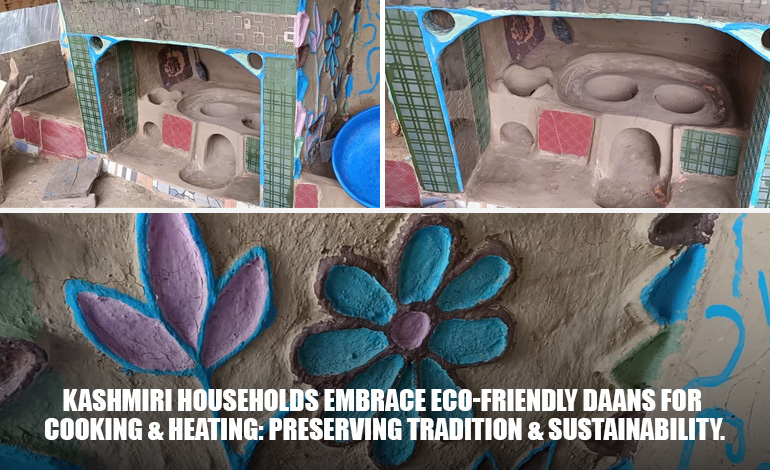Kashmiri households in rural areas continue to rely on traditional stoves for cooking and heating. These stoves, known as 'daans', are made from mud and straw and are heated with firewood.

Kashmiri households in rural areas continue to rely on traditional stoves for cooking and heating. These stoves, known as 'daans', are made from mud and straw and are heated with firewood. Daans have been used in Kashmir for centuries and are an essential part of Kashmiri culture. They are not only used for cooking food, but they also provide warmth during the cold winter months.
However, the use of traditional stoves is declining in Kashmir due to the increasing availability of modern stoves which are more efficient and convenient. Additionally, the government of Kashmir is promoting the use of clean energy, and modern stoves are seen as a more environmentally friendly option.
Despite the decline in the use of traditional stoves, they continue to play an important role in Kashmiri culture. They are a symbol of the region's rich history and heritage and are a reminder of the challenges that Kashmiri families have faced over the centuries.
WHAT ARE THE ADVANTAGES OF USING DAANS?
1) Affordable: Daans are much more affordable than modern stoves. The cost of a new daan is typically around $50, while the cost of a new gas or electric stove can be several hundred dollars.
2)Easy to maintain: Daans are very easy to maintain. All you need to do is clean them out every few weeks and replace the firewood when it burns out.
3) Efficient: Daans are surprisingly efficient. They can heat up a room quickly and evenly, and they use less fuel than modern stoves.
4) Eco-friendly: Daans are a more eco-friendly option than modern stoves. They produce less pollution and they do not rely on fossil fuels.
The future of daans is uncertain. On the one hand, the increasing popularity of modern stoves could lead to a decline in the use of daans. On the other hand, the growing interest in sustainable living could lead to a resurgence in the popularity of daans. However, one thing is for sure: they will continue to play an important role in Kashmiri culture for many years to come.